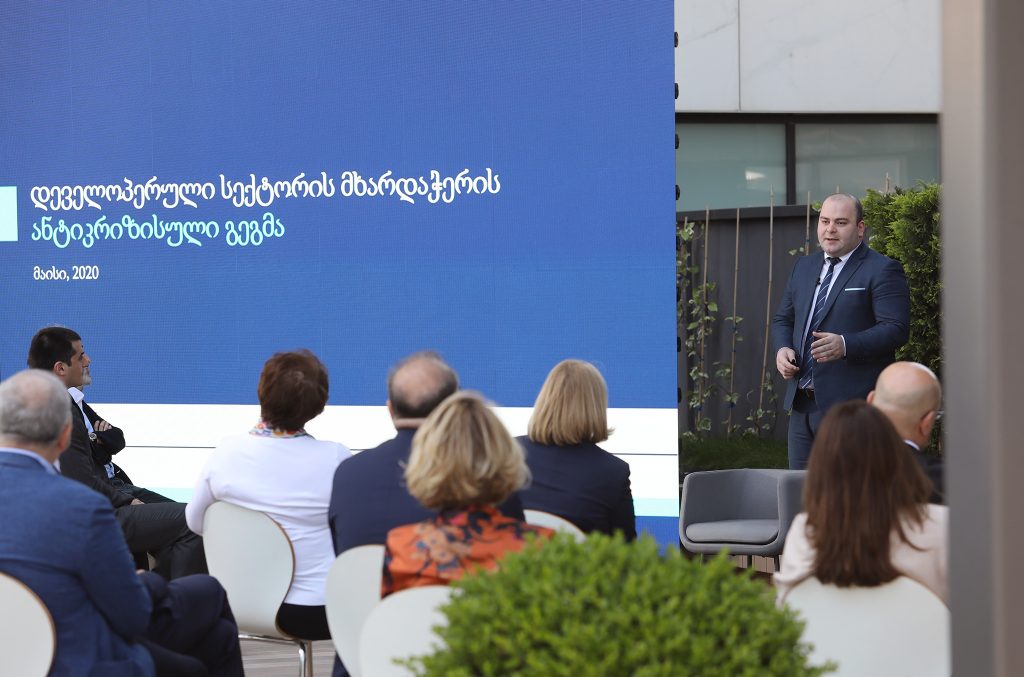Question: What is the current state of your economy?
Answer: We are experiencing a gradual stabilization of the pandemic’s negative impact on our economy. Georgia has almost fully reopened the economy and is seeing a moderate recovery of economic activity. Of course, tourism-related activities remain subdued, thus creating negative pressure on current account. We have implemented a strong recovery plan that amounts to 7.8% of GDP to support the private sector’s liquidity challenges that includes broad support for families and different vulnerable groups to bolster private consumption. We are now entering the third phase of our economic recovery plan that remains focused on investments for families, students and small and medium-sized businesses. As Prime Minister Gakharia has noted, we are in for a slow period of economic recovery due to the pandemic. Georgia may be doing well as it relates to containing the virus, but of course, we also have to stay committed to implementing long-term structural reforms. This means we will maintain the resources necessary to further realize the economic potential of our country and build our economy as a transportation hub, a link between huge markets in the East and West, and of course, tourism. The rest of the world needs to re-open safely in order for Georgia to regain its full economic momentum.
Question: What is your main focus right now as you begin to re-open the economy?
Answer: Our people are our most valuable asset. This includes families, retirees, workers, and most notably, the younger generation, including students. This is where we are investing right now. Actions include covering utility fees, student tuition fees, additional unemployment assistance, and a cash payment for children. There are three main goals for the third phase of the recovery plan; 1. Due to the pandemic and related containment measures, many of our students or their families have lost their income. Many are not able to pay for their education, so the government decided to cover related expenses for those vulnerable students to support the continuation of their education. 2. Families with a child have a different cost structure that is far more complex and to support them, the government has initiated a one-off compensation scheme for every child in a family. 3. Winter is coming, so subsidizing utility expenses will be crucial for our citizens. We are already planning on budgets for further investments after the first of the year if the economy doesn’t start to perform at a higher level by then.
Question: What are you doing to restart broader sectors of the economy?
Answer: From day one, we not only took swift action to control the pandemic but also looked ahead and developed a robust economic recovery plan. This crisis is quite unique because it creates implications on both sides of the economy – reducing demand and supply simultaneously. As such, companies are experiencing liquidity problems. We have initiated credit guarantee schemes to support private sector liquidity implications. The Ministry of Finance has deferred state taxes for most affected sectors including for the hospitality industry. In other sectors, we have implemented separate recovery schemes for the development sector, tourism sector, service, and trade sector, and so on. Georgians are resilient people and we know our future is built on global engagement. Our plan consists of a clear but measured re-engagement. We have turned back on our role as a regional transport hub, started receiving tourists, and are now investing in the backbone of our economy – small and medium-sized businesses.
Question: What role is the international community playing in your economic recovery?
Answer: Our deliberate and assiduous work with our allies has been a great boost to our longer-term ability to recover and thrive. We are remarkably grateful to our international friends. As COVID-19 has presented an economic threat to Georgia’s economy, the European Union Commission has agreed to provide Georgia and seven other countries, macro-financial assistance to help limit the economic fallout of the coronavirus pandemic. Georgia will receive 150 million euros of assistance to strengthen public finance management, improve governance, sector reforms, and labor market policies. The United States and other multilateral institutions have also stepped up with significant supplemental financing to make sure Georgia regains its economic footing.

